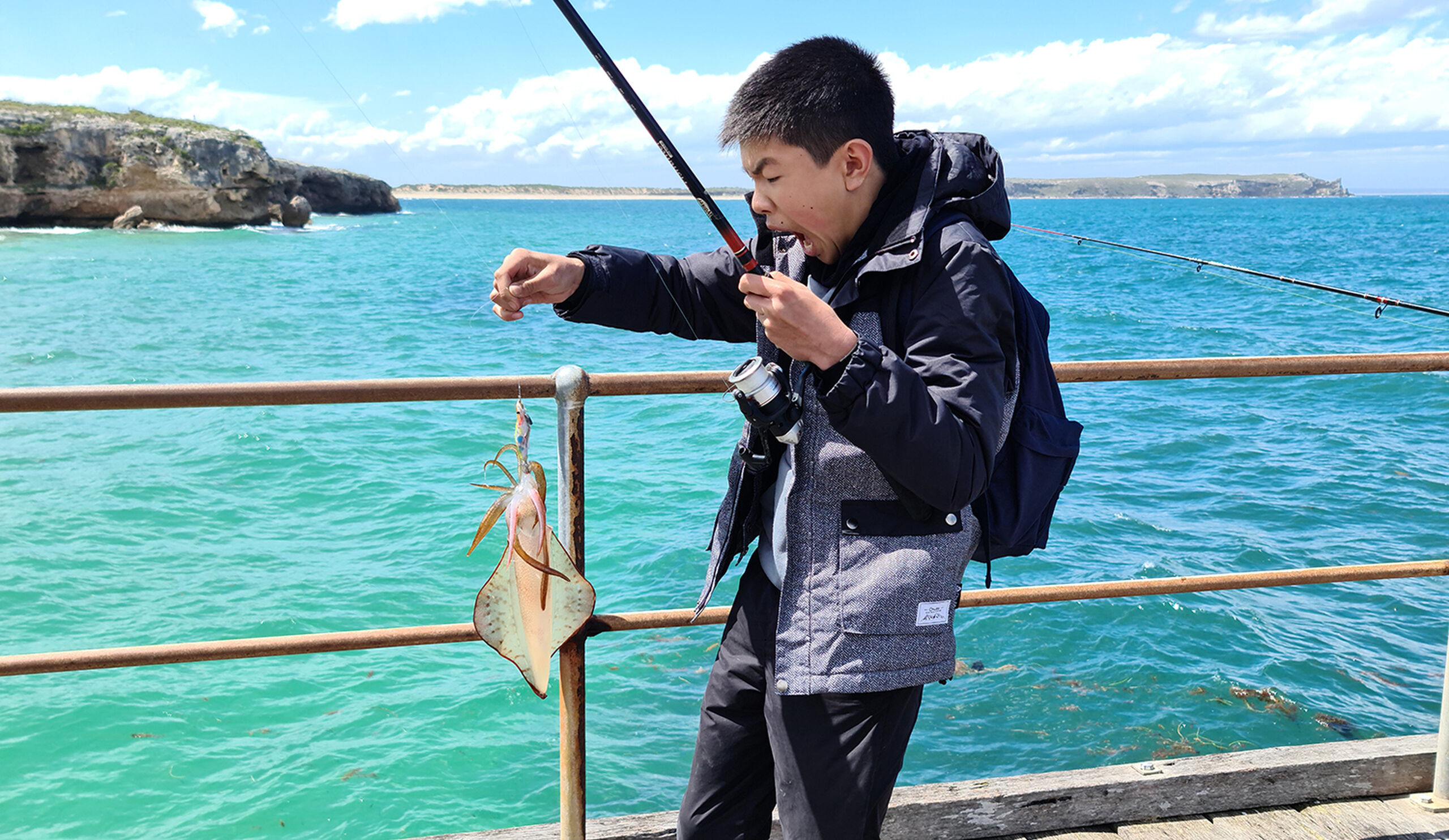21 December 2021
In 2020 our Middle School Outdoor Education Program stalled due to the Covid-19 pandemic. We were restricted to school-based activities and limitations were placed on all that we do. As we have worked through these problematic issues, we emerged from one wilderness back into the one we yearn for with energy, vigour, and renewed purpose.
Early in Term 1, we saw the facilitation of the Year 7 Outdoor Education Program. Based at the School’s Environmental Learning Centre, Old Watulunga, a 45-acre site which fronts the picturesque Finniss River lagoon. The students participate in a two-and-a-half-day program which includes raft building, group dynamics, kayaking, surfing, indigenous cultural activities, and lessons in surf safety. The aim is to provide a unique experience which will enable the students to challenge themselves, learn about themselves, extend social relationships, and begin to know what it is to part of a larger community.
Facilitated in parallel to this program, is our pinnacle experience, the Year 10 Coorong Journey. This is the cornerstone of our Middle School Outdoor Education Program. For six days our students push themselves in the wilderness of the Coorong National Park. The school has over 35 years of experience in this region and with our customised fleet of aluminium expedition yachts and our collection of sea kayaks we are able to access remote and unique parts of the Coorong. This experience is very challenging on many levels and the land on which it is run is a beautiful place of contrasts. From the silent, still sunrises through the to the stormy, windswept waters on which the students navigate, self-awareness is heightened through facing real world experiences, problem solving as a member of a team, and forging new friendships.
Undertaken in Term 2, our four day Year 8 Program aims to build and strengthen the social foundations of our community. Exploring both Old Watulunga, and the southern Fleurieu Peninsula we aim to gain a ‘sense of place’ of this part of our region. The experience begins with an evening of Indigenous Culture engaging and listening to Ngarrindjeri Elder and Pembroke’s Cultural Advisor, Mr Cedric Varcoe, around a warming campfire. Students then undertake an overnight bushwalking expedition along the panoramic Heyson Trail, camping at Waitpinga Beach. This adventurous expedition challenges students and aims to teach them basic expedition skills that they will utilise on future camps. The experience concludes with stories of the Pembroke traditions and House spirits, with one of the highlights being an old fashioned theatre.
In Term 4 we focus on what many old scholars describe as one of the biggest adventures on the Middle School Outdoor Education calendar, the five day Year 9 Program. This is undertaken on the southern tip of the Yorke Peninsula and still visits the same locations which we have used for over 40 years. The highlight of this program is the coastal bushwalk which explores dynamic and scenic coastline of this region. This is a physically demanding experience and is reliant on the students pulling together and supporting one another while they navigate the Walk the Yorke Trail.
Our students become reliant on one another, they learn how to support each other, they are challenged together, and they thrive together. Interdependency, leadership, and resilience are encouraged and fostered. Local histories are taught, and Indigenous culture is explored. On all of our Outdoor Education experiences we ask that students hand over their technology and our outdoor classrooms become phone and screen free. After a week of engaging with the land, many robust conversations, making new friends and even singalongs it is with no surprise that our students often remark how they didn’t miss their phones at all. In this time of social restrictions, the need for students to experience time away from technology has never been so critical.
I encourage the readers of this article to converse and connect with those who have been on our programs. To find out what has happened and to hear the many stories of this authentic experience. Often the clarity that is gained from adventuring into a technology-free wilderness zone can lead to an examination of personal values, which when shared, can be very insightful.
Ben Williamson
Coordinator of Outdoor Education


